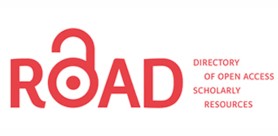ENUNCIATIVE AND IDEOLOGICAL IMPLICATIONS OF PROMPT ENGINEERING IN CHATGPT: a study on the discursive construction of misogyny among young Incels
Keywords:
Prompt engineering, ChatGPT, Misogyny, Incel speech, Enunciation, Bakhtin circleAbstract
This article investigates the enunciative and ideological implications of prompt engineering in ChatGPT, with a particular focus on interactions involving conservatism among young incels and the misogynistic discourse prevalent within this group. The study is theoretically grounded in the Bakhtin Circle, drawing on concepts such as dialogism, the responsive nature of enunciation, and the interplay between language and ideology, as articulated by Bakhtin (2010; 2011) and Volóchinov (2021). Methodologically, we conducted a series of interactions with ChatGPT based on prompts crafted according to specific structural parameters. These prompts featured distinct incel personas, allowing us to analyze the model’s responses in terms of their discursive and axiological positioning. Our findings reveal that the utterances generated by the model reflect complex ideological negotiations, shifting between empathetic tones and misogynistic affirmations, depending on the configuration of the prompts. We conclude that prompt engineering functions as a discursive mediation device that shapes the AI’s ideological stance, highlighting ethical and discursive vulnerabilities that are highly relevant to current debates in language and technology studies.
Downloads
References
ABU SHAWAR, B.; ATWELL, E. Chatbots: Are they Really Useful?. Journal for Language Technology and Computational Linguistics, v. 22, n.1, p. 29–49. 2007. Disponível em: https://doi.org/10.21248/jlcl.22.2007.88. Acesso em: 19 out. 2023.
BAKHTIN, Mikhail. Os gêneros do discurso. Paulo Bezerra (Organização, Tradução, Posfácio e Notas); Notas da edição russa: Seguei Botcharov. São Paulo: Editora 34, 2016. 164p.
BAKHTIN, M. M. Estética da criação verbal. Martins fontes, 2011.
BOND, Kimberley. “I’ve spent time with incels – 'Adolescence' is the scary reality". 22 mar. 2025. Disponível em: https://www.harpersbazaar.com/uk/culture/culture-news/a64251997/adolescence-netflix-review-incel/. Acesso em: 21 abr. 2025.
BOZKURT, Aras; SHARMA, Ramesh C. Generative AI and prompt engineering: The art of whispering to let the genie out of the algorithmic world. Asian Journal of Distance Education, v. 18, n. 2, p. i-vii, 2023. Disponível em: https://www.asianjde.com/ojs/index.php/AsianJDE/article/view/749. Acesso em: 19 abr. 2025.
BRACE, Lewys. A Short Introduction To The Involuntary Celibate Sub-Culture. 26 ago. 2021. Disponível em: https://crestresearch.ac.uk/resources/a-short-introduction-to-the-involuntary-celibate-sub-culture/. Acesso em: 18 abr. 2025.
BSHARAT, Sondos Mahmoud; MYRZAKHAN, Aidar; SHEN, Zhiqiang. Principled instructions are all you need for questioning llama-1/2, gpt-3.5/4. arXiv preprint arXiv:23
CASTILHO, Gustavo Uruguay; RODRIGUEZ, Carla Lopes; HERRERA, Victoria Alejandra Salazar. Um Relato de Experiência de aplicação de Engenharia de Prompt no Ensino Superior em STEM. In: Workshop em Estratégias Transformadoras e Inovação na Educação (WETIE). SBC, 2024. p. 69-78. Disponível em: https://sol.sbc.org.br/index.php/wetie/article/view/31826/31628. Acesso em: 19 abr. 2025.
FARACO, C. A. Linguagem & diálogo: as ideias linguísticas do círculo de Bakhtin. Parábola Editorial, 2009.
FØLSTAD, A., NORDHEIM, C.B., BJØRKLI, C.A. What Makes Users Trust a Chatbot for Customer Service? An Exploratory Interview Study. Internet Science. INSCI 2018. Lecture Notes in Computer Science. Springer Cham. v. 11193, p. 194–208, set. 2018. Disponível em: https://doi.org/10.1007/978-3-030-01437-7_16. Acesso em: 19 out. 2023.
Google. Tips to write prompts for Gemini - Google Workspace Learning Center. 2024. Disponível em: https://support.google.com/a/users/answer/14200040?hl=en. Acesso em: 19 abr. 2025.
GOTHARD, Kelly Caroline. The incel lexicon: Deciphering the emergent cryptolect of a global misogynistic community. (Tese de doutorado).The University of Vermont and State Agricultural College, 2021. Graduate College Dissertations and Theses. 1465. Disponível em: https://scholarworks.uvm.edu/graddis/1465. Acesso em: 18 abr. 2025.
HAUSER, Christine. Reddit bans' incel'group for inciting violence against women. The New York Times, p. NA (L)-NA (L), 2017. Disponível em: https://link.gale.com/apps/doc/A514022956/AONE?u=anon~3a2a6457&sid=googleScholar&xid=3e336d29. Acesso em: 19 abr. 2025.
HOFFMAN, Bruce; WARE, Jacob; SHAPIRO, Ezra. Assessing the threat of incel violence. Studies in Conflict & Terrorism, v. 43, n. 7, p. 565-587, 2020. Disponível em: https://doi.org/10.1080/1057610X.2020.1751459. Acesso em: 19 abr. 2025.
LINDSAY, Angus. Swallowing the black pill: Involuntary celibates'(Incels) anti-feminism within digital society. International Journal for Crime, Justice and Social Democracy, v. 11, n. 1, p. 210-224, 2022. Disponível em: https://search.informit.org/doi/abs/10.3316/informit.379622488850885. Acesso em: 19 abr. 2025.
KORZYNSKI, Pawel et al. Artificial intelligence prompt engineering as a new digital competence: Analysis of generative AI technologies such as ChatGPT. Entrepreneurial Business and Economics Review, v. 11, n. 3, p. 25-37, 2023. Disponível em: https://eber.uek.krakow.pl/index.php/eber/article/view/2142. Acesso em: 19 abr. 2025.
MADAAN, Aman et al. Memory-assisted prompt editing to improve GPT-3 after deployment. arXiv preprint arXiv:2201.06009, 2022. Disponível em: http://arxiv.org/abs/2201.06009. Acesso em: 19 abr. 2025.
MATTER, Daniel et al. Investigating the increase of violent speech in incel communities with human-guided gpt-4 prompt iteration. Frontiers in Social Psychology, v. 2, p. 1383152, 2024. Disponível em: https://doi.org/10.3389/frsps.2024.1383152. Acesso em: 19 abr. 2025.
MOONSHOT CVE. Incels: a guide to symbols and terminology. Ottawa: Moonshot CVE, 2021. Disponível em: https://static1.squarespace.com/static/5d77e56c1fc5e024160affa9/t/60ae7e55d9b4d96bc6c213b8/1622048505454/Incels_-A-Guide-to-Symbols-and-Terminology_Moonshot-CVE.pdf. Acesso em: 2 maio 2025.
OPENAI et al. Introducing ChatGPT. [S. l.], 30 nov. 2022. Disponível em: https://openai.com/index/chatgpt/. Acesso em: 29 jul. 2024.
RENFREW, Alastair. Mikhail Bakhtin. Tradução de Marcos Marcionilo. 1. ed. São Paulo: Parábola Editorial, 2018. 224 p.
STEVENS, Gunnar; BODEN, Alexander; VON REKOWSKI, Thomas. Objects-to-think-with-together. In: End-User Development: 4th International Symposium, IS-EUD 2013, Copenhagen, Denmark, June 10-13, 2013. Proceedings 4. Springer Berlin Heidelberg, 2013. p. 223-228. Disponível em: https://www.researchgate.net/publication/296671368_Objects-to-think-with-together. Acesso em: 19 abr. 2025.
SAFELINE. Understanding Incel Ideology. 2025. Disponível em: https://safeline.org.uk/resources/information-for-professionals/understanding-incel-ideology/. Acesso em: 18 abr. 2025.
SANTOS, V. V. V. Práticas linguísticas em Big Data. Texto Livre, Belo Horizonte-MG, v. 10, n. 1, p. 31–52, 2017. Disponível em: https://periodicos.ufmg.br/index.php/textolivre/article/view/16744. Acesso em: 19 out. 2023.
VOLÓCHINOV, V. Marxismo e filosofia da linguagem: problemas fundamentais do método sociológico na ciência da linguagem. ed. 3ª, São Paulo: Editora 34, 2021
WU, Tianyu et al. A brief overview of ChatGPT: The history, status quo and potential future development. IEEE/CAA Journal of Automatica Sinica, v. 10, n. 5, p. 1122-1136, 2023. Disponível em: https://doi.org/10.1109/JAS.2023.123618. Acesso em: 29 jul. 2024.
Downloads
Published
How to Cite
Issue
Section
License
Copyright (c) 2025 Open Minds International Journal

This work is licensed under a Creative Commons Attribution-NonCommercial-NoDerivatives 4.0 International License.
The authors declare that any work submitted, if accepted, will not be published elsewhere, in English or in any other language, and even electronically, unless it expressly mentions that the work was originally published in the Journal.













